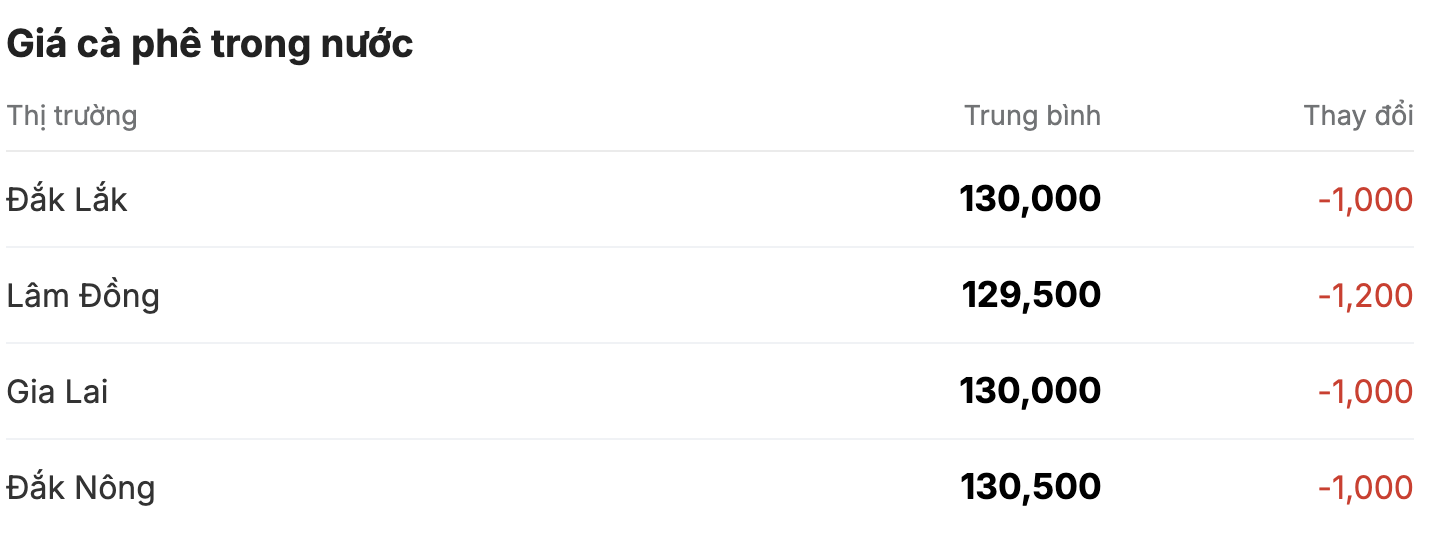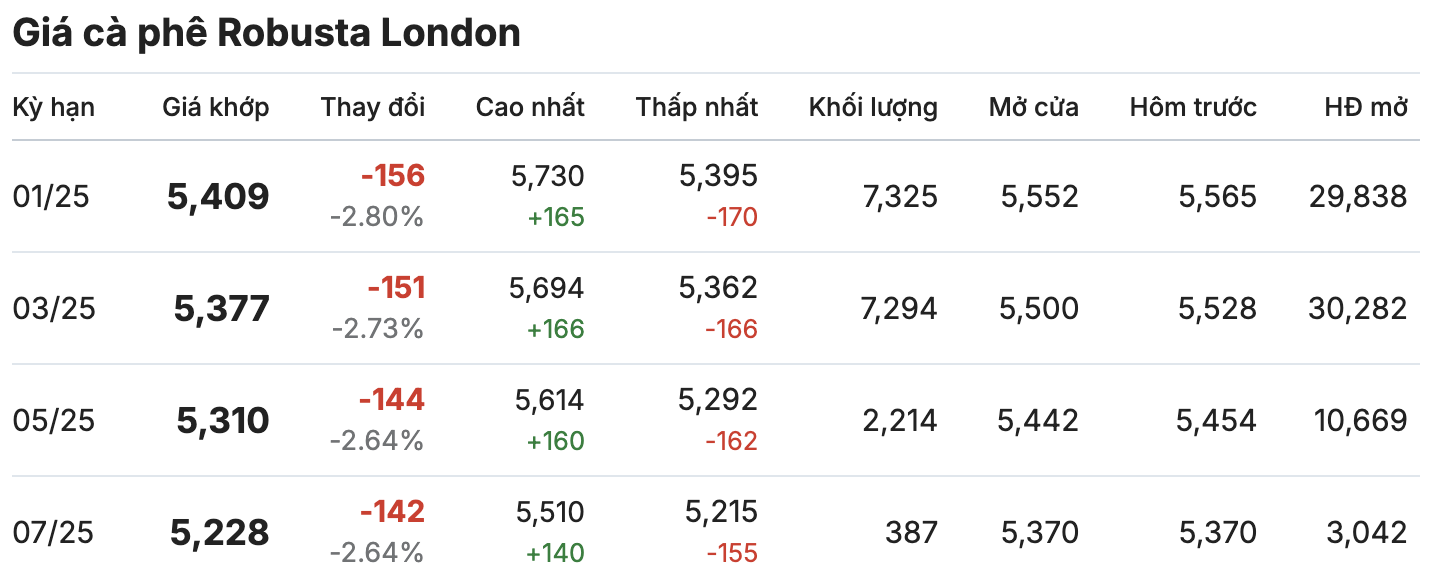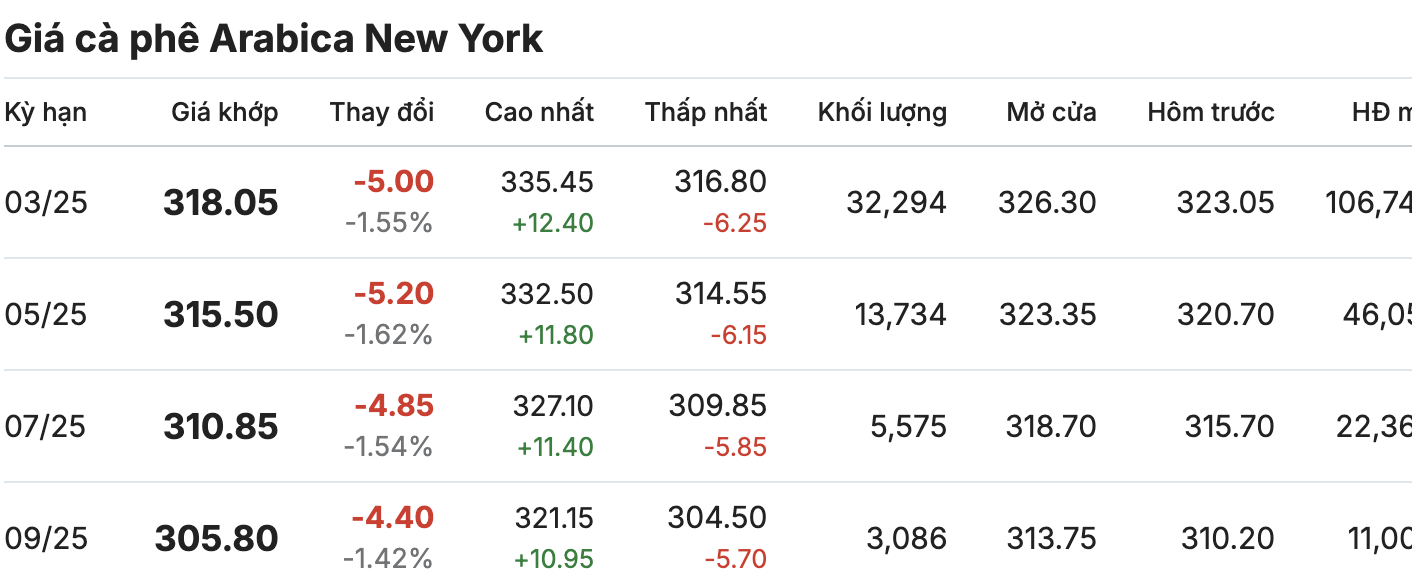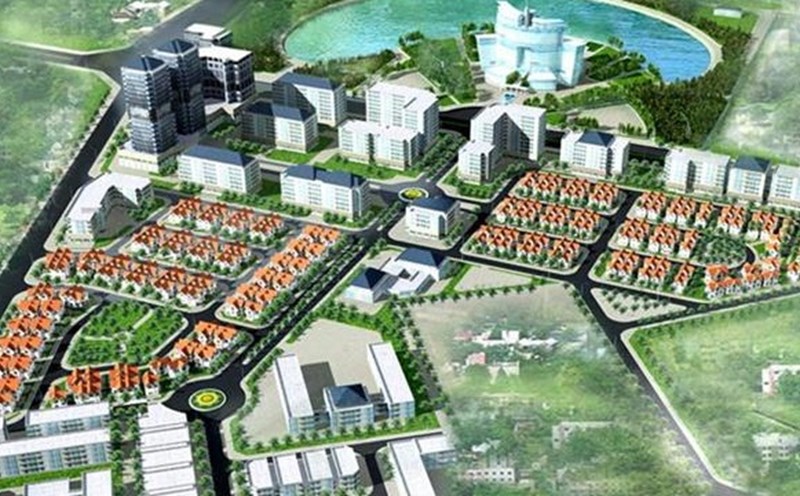As of 1:30 p.m. today (November 30), the domestic coffee market suddenly turned around and dropped sharply, an average decrease of VND1,000/kg, causing prices to fluctuate between VND129,500 - VND130,500/kg. The average coffee purchase price in the Central Highlands provinces is VND130,200/kg.
Lam Dong is still the province with the lowest coffee purchasing price in the Central Highlands. Compared to yesterday's closing price, coffee prices in this region decreased by VND1,200/kg to VND129,500/kg.
Similar to Gia Lai, Dak Lak province also recorded a decrease of 1,000 VND/kg, standing at 130,000 VND/kg.
Dak Nong is the province that maintains its position as having the highest coffee purchasing price in the country, down 1,000 VND/kg, currently listed at 130,500 VND/kg.
After a series of consecutive days of setting new peaks, domestic coffee prices today are covered in red.

On the London and New York exchanges, the coffee market fell dramatically across all terms. The January 2025 contract fell nearly 3% (equivalent to 156 USD/ton), standing at 5,409 USD/ton. The March 2025 contract was listed at 5,377 USD/ton, down 2.73% (equivalent to 151 USD/ton).

Similarly, the developments in the New York Arabica coffee market showed that the December 2024 and March 2025 delivery terms both plummeted, listed at 318.05 cents/lb and 315.50 cents/lb, respectively.

According to experts, Arabica coffee prices continued to increase sharply after the Thanksgiving holiday, but turned around towards the end of the session and fell sharply due to the New York stock exchange dumping.
However, this decline has not been able to cause prices on the two floors to fall to a low level. Because after 7 consecutive sessions of increase, Arabica prices have increased to their highest level in nearly half a century. Notably, recent trading sessions show that the further the term, the stronger the price increases. This shows that the market is lacking long-term supply.
StoneX, a US financial services consultancy, predicts Brazil's coffee output in the 2025-2026 crop year will fall by 0.4% compared to the current crop year, mainly due to a decline in Arabica coffee due to prolonged drought during the crucial flowering stage.











